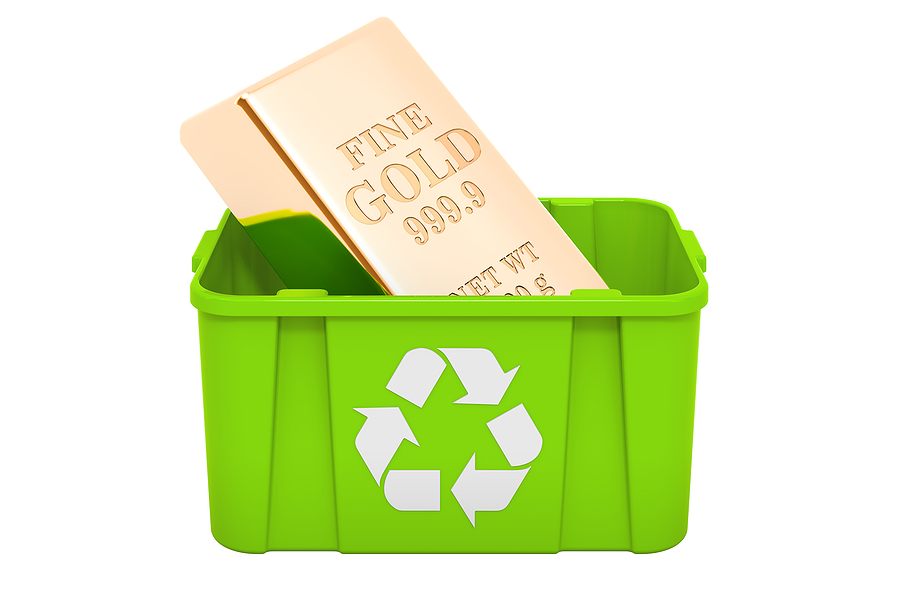It is theorized that more than one hundred million years ago during the formation of the Earth, iron sank deep within the center of the planet to create Earth’s core. This core, primarily made from iron, took most of Earth’s precious metals with it, like gold, silver, platinum, zirconium, palladium, and more. There is predicted to be enough precious metal in the planet’s core to cover the entire surface of Earth in a 13-foot deep layer. That’s a lot of metal! Unfortunately, there are a limited amount of precious and valuable metals found on Earth, today, making it critical to recycle them every chance we get.
Continue reading to review some frequently asked questions about recycling precious metals, and perhaps be motivated to jump on board with this important environmental initiative!

Frequently Asked Questions About Precious Metals
What are Precious Metals?
Precious metals are rare, naturally occurring, and retain high economic value. They are mostly used for currency, jewelry, and industrial applications. Common types include gold, silver, platinum, palladium, titanium, chromium, zirconium, tungsten, cobalt, rhodium, indium, rhenium, osmium, iridium, and ruthenium.
Can All Precious Metals Be Recycled?
Yes, all metal can be recycled, including noble, precious, ferrous, and non-ferrous alloys. Not only can you recycle precious metal to be repurposed, but you can also make money from the entire process. Many scrap metal buyers pay cash on the spot for any metals and alloys. They even accept junk that contains metal, regardless of age or condition.
What are the Current Metal Prices for Common Precious Metals?
Right now, the London Fix values report that Gold is around $1,776.40, Silver is around $20.15, Platinum is around $937.00, and Palladium is around $2086.00. These values change virtually every day, as they are easily influenced by numerous worldwide factors.
What Can I Find Titanium to Recycle?
Titanium metal can be found in all sorts of places, even just around your house. Items like dental implants, jewelry, eye wear, watches, and electronic protective cases are common items made with titanium. Other common items include drill bits, wrenches, bolts, and other tools. It is also a common element in motorcycle parts, like brake components, exhausts, clutch levers, and even handlebars.
Is a Precious Metal Also a Noble Metal?
Noble metals include both precious and non-ferrous metals. Non-ferrous metals do not contain iron, so they are resistant to several elements and subsequent damage, including humidity, chemicals, oxidation, and more. Precious metals are naturally occurring and retain higher economic value. Noble metals are metals that are resistant to corrosion and oxidation in moist conditions, namely humidity.
How Do I Sell Precious Metal?
Although it is simple to find someone to pay you for your precious metals and fine jewelry, it is responsible to find a center that conscientiously recycles, refines, and redistributes them. Simply look to your local directories for a trusted and reputable Indianapolis metal recycling center in your city. It is important to find the company that can offer you the best and fairest return for your gold, silver, platinum, or other scrap metal you wish to recycle.
If you have precious metal items or general metal scrap, sell it to us for cash on the spot! Contact Zore’s Recycling at 317-244-0700 for profitable scrap metal recycling services in Indianapolis, Indiana. Get paid instantly for appliances, computers, laptops, electronics, auto parts, pure jewelry/art, and anything else that contains precious metals!
Related Posts:
Educational Facts About Titanium Alloys
How to Ensure Protection When Throwing Away Old Hard Drives
How to Estimate the Price of Your Scrap
